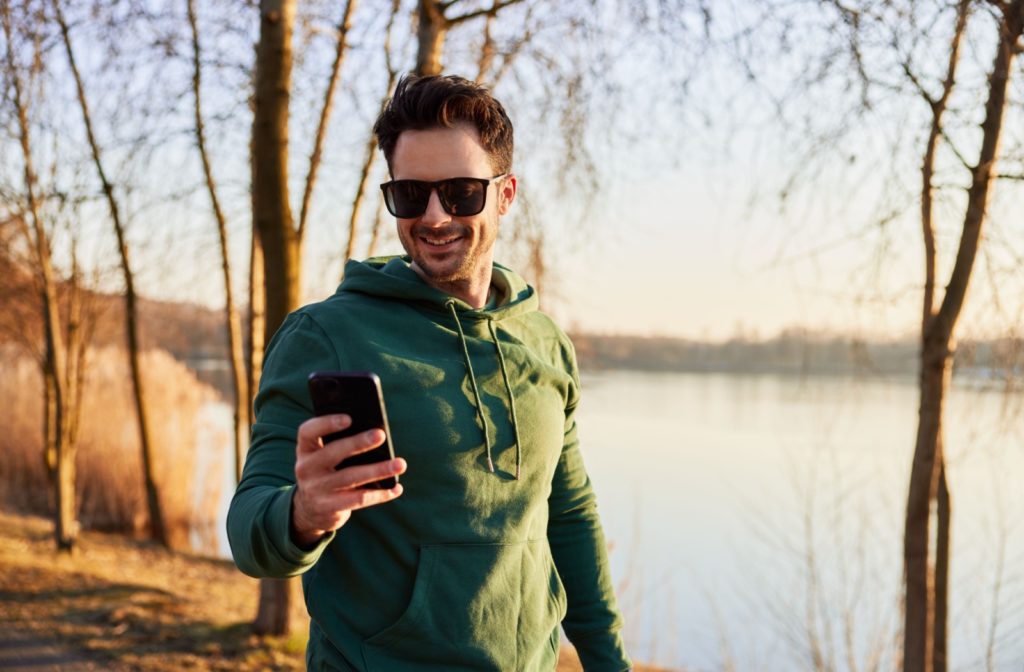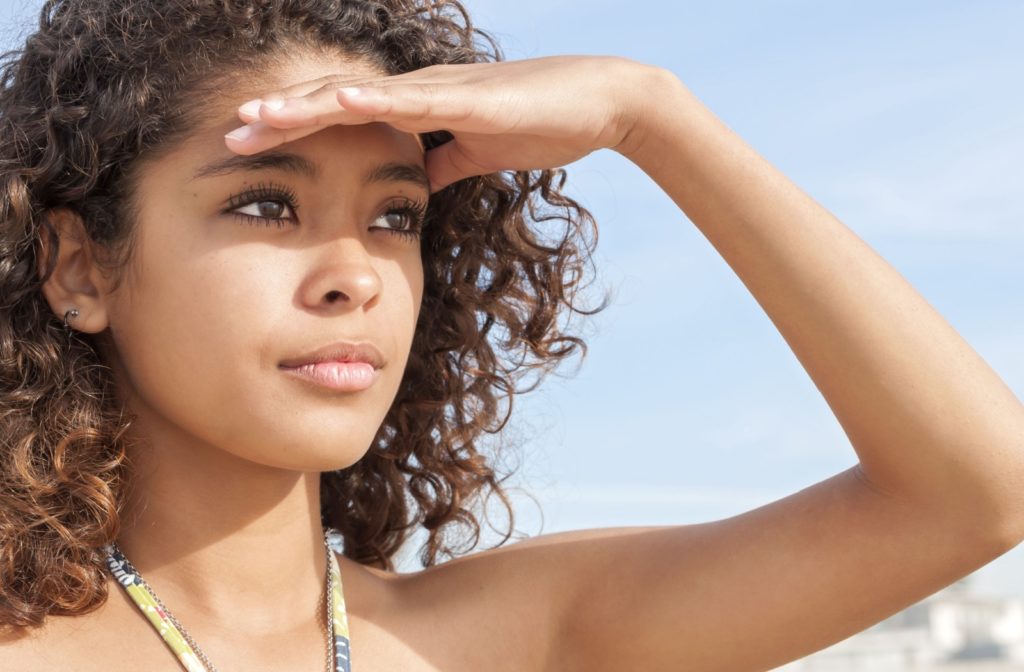Ultraviolet (UV) radiation is a type of energy produced by the sun that can have significant effects on our health. While UV radiation is known for causing skin damage, many people are unaware of its impact on eye health.
Prolonged exposure to UV rays can lead to serious eye conditions such as:
- Cataracts
- Macular degeneration
- Photokeratitis
Understanding how to protect your eyes from UV radiation is crucial. While sunglasses are a common method of shielding your eyes, many wonder if their contact lenses can provide similar protection.
The good news is that many modern contact lenses do offer UV protection. However, not all contacts are created equal.
Some contact lenses are designed with UV-blocking materials that can help shield your eyes from harmful rays.
It’s important to check if your contacts have this feature by looking at the product details or consulting with your optometrist. Even with UV-blocking contacts, it’s still a great idea to wear sunglasses for optimal protection.
How Contact Lenses Can Provide UV Protection
Contact lenses with UV protection are designed to block a percentage of harmful UV-A and UV-B rays, reducing the risk of UV-related eye damage.
The level of protection varies depending on the type of lens and manufacturer, but incorporating UV-blocking technology into contact lenses adds an extra layer of defense against harmful radiation.
Types of Contact Lenses with UV Protection
There are several types of contact lenses available with UV protection. These include:
- Soft Contact Lenses: Many soft contact lenses now come with built-in UV-blocking technology. Brands like Acuvue, Bausch + Lomb, and CooperVision offer lenses that block a significant amount of UV rays.
- Rigid Gas Permeable (RGP) Lenses: While less common, some RGP lenses also include UV protection. These lenses are durable and provide vision correction, making them a popular choice for those with specific vision needs.
- Daily, Bi-weekly, and Monthly Lenses: Regardless of your preferred wearing schedule, you can find UV-protective options across daily, bi-weekly, and monthly disposable lenses.
Comparing UV Protection: Contact Lenses vs. Sunglasses
While UV-protective contact lenses are beneficial, they should not be considered a complete replacement for sunglasses.
Contact lenses cover only the cornea, leaving the rest of the eye and surrounding areas exposed to UV rays. Sunglasses, on the other hand, provide more comprehensive coverage, shielding the entire eye area.
When it comes to UV protection, combining UV-blocking contact lenses with high-quality sunglasses offers the best defense against UV light.
The Limitations of UV-Protective Contact Lenses
Although UV-protective contact lenses add a valuable layer of defense, they are not foolproof. Here are some things to keep in mind:
- Coverage Area: Contact lenses only protect the part of the eye they cover. The eyelids and surrounding skin are still vulnerable to UV exposure.
- UV Blocking Percentage: The level of UV protection varies by lens type and brand. Not all lenses block the same amount of UV rays, so it’s essential to choose lenses that provide enough protection.
- Supplementary Protection: Even with UV-blocking contact lenses, wearing a wide-brimmed hat and seeking shade during peak UV hours can further reduce your risk of UV-related eye damage.

Choosing the Right UV-Protective Contact Lenses
Selecting the right UV-protective contact lenses involves considering your lifestyle, vision needs, and eye health. Here are some tips to help you choose:
- Consult Your Optometrist: Before making any changes, discuss your options with an eye care professional. They can recommend lenses that suit your specific needs and provide the best UV protection.
- Look for High UV Blocking Percentages: Opt for lenses that block a high percentage of both UV-A and UV-B rays. Check the product specifications or consult your optometrist for details.
- Consider Your Wearing Schedule: Whether you prefer daily disposables or monthly lenses, make sure there are UV-protective options available that fit your wearing habits.
Additional Tips for Protecting Your Eyes from UV Damage
In addition to wearing UV-protective contact lenses and sunglasses, here are some extra steps you can take to safeguard your eyes from UV radiation:
- Wear a Hat: A wide-brimmed hat provides additional shade and reduces the amount of UV radiation reaching your eyes.
- Seek Shade: Whenever possible, stay in the shade, especially during peak UV hours (10 AM to 4 PM).
- Check the UV Index: Stay informed about the daily UV index in your area and take extra precautions when the index is high.
- Regular Eye Exams: Keep up with regular eye exams to monitor your eye health and ensure your lenses provide enough UV protection.
Comprehensive UV Protection
While contact lenses with UV protection can offer some benefits, they should complement, rather than replace, other protective measures like sunglasses and hats.
By combining these strategies, you can better protect your eyes from the effects of UV radiation and enjoy your outdoor activities with confidence.
If you’re interested in learning more about contact lenses with UV protection or want to further your protection from the sun with a new pair of sunglasses, book an appointment with the team at Total Vision Del Mar.



